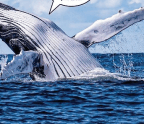READING THEIR WORLD

When did you become a reader? How did you do it? First, let’s clear something up. When I talk about reading, I am not talking about reading printed words. That is called decoding. Decoding is when you see a word like shipment and you take its parts, like /sh/ and /i/ and /p/ and /ment/, and blend them together. And this makes a word: shipment. You might not know what that word means, but you can say it.
It’s like how a detective decodes clues.
Reading, on the other hand, is. Many kids read picture books with adults. A 4-year-old may see the Big Bad Wolf at the pig’s straw house and say, “And I’ll huff and I’ll puff and I’ll blow your house down!” We don’t call that looking time, right? No. We call it reading time. Young readers follow along with pictures and sometimes memorize their favorite stories. That’s . They aren’t pointing to the printed words. Actually, they might not even notice them.
You’re reading a preview, subscribe to read more.
Start your free 30 days





